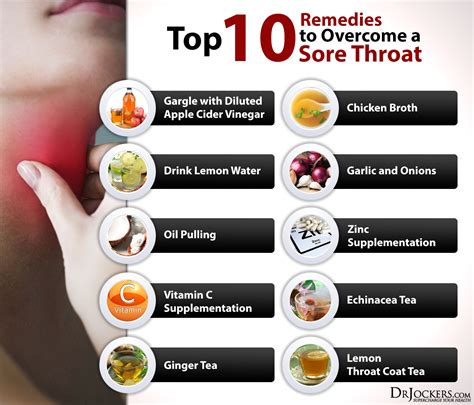How to Get Rid of a Sore Throat: Home Remedies and When to See a Doctor
A sore throat, that scratchy, painful feeling in your throat, is a common ailment that can be caused by various factors, from viral infections like the common cold and flu to allergies, irritants, and even acid reflux. While most sore throats resolve on their own within a week, knowing how to soothe the discomfort and when to seek professional help is crucial. This guide will walk you through effective home remedies and explain when you should consult a doctor.
Home Remedies for Sore Throat Relief
Before diving into remedies, it's important to drink plenty of fluids. This helps to keep your throat moist and prevents dehydration, which can worsen the discomfort. Water, herbal tea (especially chamomile or ginger), and warm broth are excellent choices. Avoid alcohol and caffeinated beverages, as they can dehydrate you.
Soothing Your Sore Throat Naturally
-
Saltwater Gargle: This classic remedy is incredibly effective. Dissolve 1/4 to 1/2 teaspoon of salt in 8 ounces of warm water and gargle for 30-60 seconds several times a day. The salt helps to draw out fluid from inflamed tissues, reducing swelling and pain.
-
Honey: Honey has natural antibacterial and soothing properties. A spoonful of honey can coat your throat, providing temporary relief. You can also add it to warm tea or lemon water. Avoid giving honey to children under one year old.
-
Rest: Your body needs rest to fight off infection. Get plenty of sleep to help your immune system recover.
-
Humidifier: Dry air can irritate a sore throat. Using a humidifier can add moisture to the air, making it easier to breathe and reducing discomfort.
-
Over-the-counter (OTC) Pain Relief: Acetaminophen (Tylenol) or ibuprofen (Advil, Motrin) can help reduce pain and fever associated with a sore throat. Always follow the dosage instructions on the packaging.
Foods to Avoid with a Sore Throat
Certain foods can exacerbate a sore throat. Try to avoid:
- Acidic foods: Citrus fruits, tomatoes, and spicy foods can irritate an already inflamed throat.
- Rough or hard foods: These can further scratch your throat. Opt for softer foods that are easier to swallow.
When to See a Doctor for a Sore Throat
While most sore throats are caused by minor viral infections and clear up on their own, there are instances when you should seek medical attention:
- Sore throat lasting longer than a week: A persistent sore throat could indicate a more serious infection.
- High fever (over 101°F or 38.3°C): This could signify a bacterial infection requiring antibiotics.
- Difficulty breathing or swallowing: These are serious symptoms requiring immediate medical attention.
- Swollen glands in your neck: This can be a sign of infection.
- Rash: A rash accompanying a sore throat could indicate a more serious illness.
- White patches or pus in your throat: This suggests a possible strep throat infection.
Important Note: This information is for general knowledge and does not constitute medical advice. Always consult a healthcare professional for diagnosis and treatment of any medical condition. They can determine the underlying cause of your sore throat and recommend the most appropriate course of action. Self-treating can sometimes delay proper treatment and worsen the condition.
